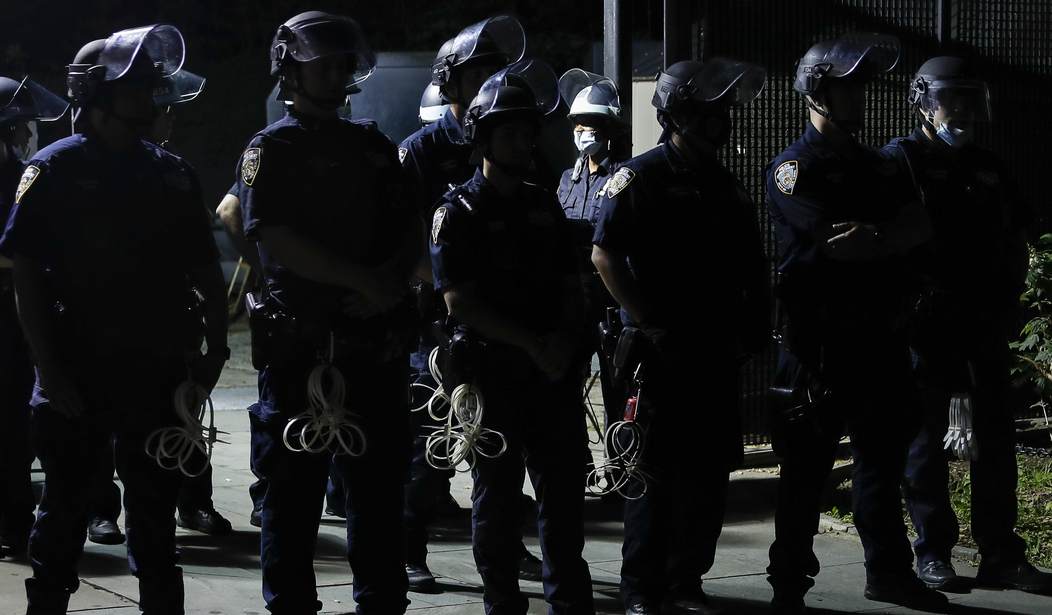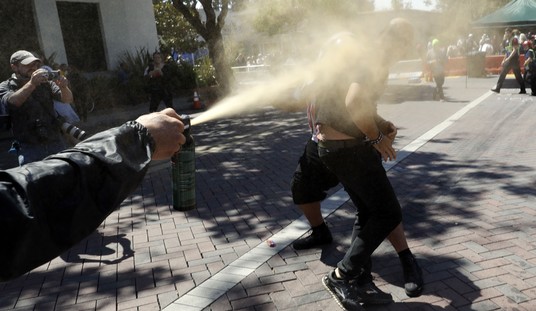For several weeks now, I’ve been pointing out the fact that the Defund Police movement cannot comfortably co-exist with the modern gun control movement, though gun control advocates are desperate to ignore the inherent contradiction between the movement to de-police our cities while imposing all kinds of new gun laws that will be enforced by armed agents of the State. Most gun control groups would rather pretend that their gun laws don’t create non-violent, possessory gun crimes, and they refuse to acknowledge that all of their efforts amount to an attempt to arrest our way to safety.
Case in point, Moms Demand Action’s Shannon Watts, who was recently interviewed by Fortune magazine and specifically said that “police violence is gun violence.”
Police violence is gun violence and that’s why our movement must be responsive as well. We’re partnering with leaders and organizations who are experts against policing. We’re committed to working with them to address white supremacy and racism at its roots. We are seeing an appetite among lawmakers to push through anti-police brutality legislation.
Now, that would have been a great time for Fortune reporter Emma Hinchcliff to ask Watts something like, “So Shannon, how exactly do you enforce gun control laws without police officers?” Of course, that didn’t happen. Instead, she lobbed softballs like these at the anti-gun activist.
The movement against gun violence and the movement against police brutality have both been led, in large part, by young people. Do you see similarities between the two?
Last month, an image went viral of a white couple, Mark and Patricia McCloskey, pointing their guns at peaceful protesters. What did that image say to you?
Looking ahead to November, what are you seeing? Which candidates are you excited about in the anti-gun violence movement?
Watts isn’t the only gun control activist using the “police violence is gun violence” line. In a new op/ed at the CT Mirror, Connecticut Against Gun Violence head Jeremy Stein lays out a plan to reduce violent crime that, oddly enough, makes no mention of any further attempt to criminalize the Second Amendment.
Gun violence in Connecticut disproportionately takes the lives of African Americans; approximately 56 percent of the state’s gun homicide victims are Black, five times the proportion who live here. Young Black men are profoundly vulnerable, killed by guns at 39 times the rate that young white men are.
The conclusion is inescapable: community gun violence must be a priority if we are to address racial injustice in Connecticut. The solutions must go beyond policing. Law enforcement-focused approaches are not enough to stop the violence. And as the murders of George Floyd, Breonna Taylor, Rayshard Brooks and others have made abundantly clear, we must not only admit that police violence exists, we must confront it head on. The simple truth is, police violence is gun violence.
CT Against Gun Violence and a broad coalition of organizations are calling on the state to launch the Connecticut Initiative to Prevent Community Gun Violence. The initiative, whether designed as a commission, program office or grant-making program, would be tasked with identifying, funding, implementing and overseeing evidence-based, community-centric, programs and strategies to reduce gun violence, especially where it impacts communities of color.
There are a range of community-based violence prevention and intervention programs that have proven track records of success. The three main strategies are all being used formally and informally in Connecticut’s urban centers: hospital-based violence intervention, on-the-ground violence interrupters and focused deterrence. What the strategies have in common is a philosophy centered on intervention to disrupt conflict and cycles of retaliation by engaging with the small proportion of individuals in urban centers, mostly young men, who are either the perpetrators or victims of gun violence.
Stein doesn’t go so far as to admit that it’s been a mistake to impose gun and magazine bans, licensing laws, and other restrictions on the right to keep and bear arms, but he also doesn’t call for a single new gun control law to be imposed in Connecticut. In other words, he’s getting closer to acknowledging the role that the modern gun control movement has played in actually creating “gun violence,” but he’s not there yet.
If the new strategy adopted by “violence prevention advocates” is actually centered around “engaging with the small proportion of individuals in urban centers, mostly young men, who are either the perpetrators or victims of gun violence,” instead of focusing on law-abiding gun owners in the hopes that there’ll be a trickle-down effect on violent criminals, I’m on board. After all, for years, legal gun owners have been pointing out that criminals don’t pay any attention to gun control laws, and that the focus needs to be on greater prosecution of violent crimes instead of restricting the Second Amendment rights of the law-abiding.
However, it’s going to take more than a single op/ed from a local anti-gun activist to convince me that the gun control movement has really seen the error of their ways. Groups like Everytown for Gun Safety, Brady, and Giffords may not be talking up their support for gun and magazine bans, ending or greatly restricting the legal carrying of firearms, and their desire to reduce legal gun ownership at the moment, but each and every one of the candidates that they’re supporting in the 2020 elections, starting with Joe Biden, are still pushing for the “ban and arrest our way to safety” approach that criminalizes the Second Amendment and has a disproportionate impact on young men, many of whom are minorities.
Unless and until these gun control groups are willing to admit that they’ve been wrong for decades, and that their gun control laws have actually created conflict between police and the communities they’re sworn to protect, their newfound appreciation for community-based interventions seems more like an attempt to stay on the Left’s good side, rather than a principled approach to reducing violence. If, as Stein claims, police violence is gun violence, then gun control laws actually create violence through enforcement of those gun control laws. It’s not enough to quietly reverse course and call for things like focused deterrence. If Shannon Watts and her anti-gun allies really believe that police violence is gun violence, then it’s time for them to work to get some of their own laws off the books.









